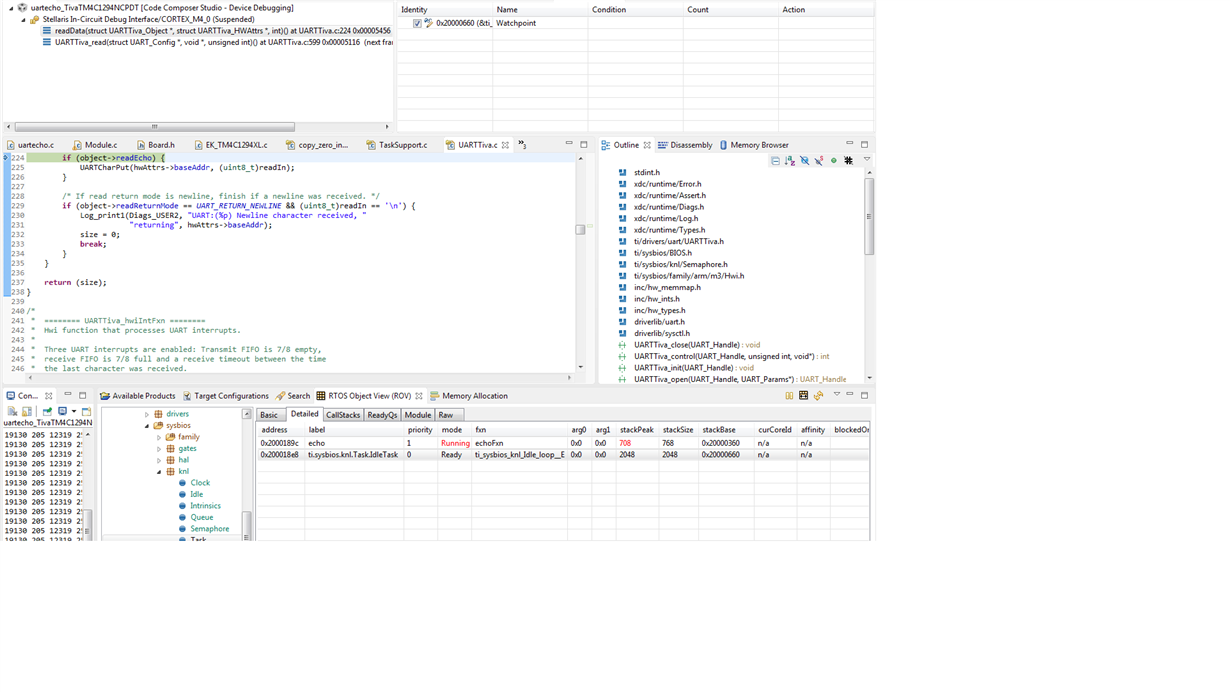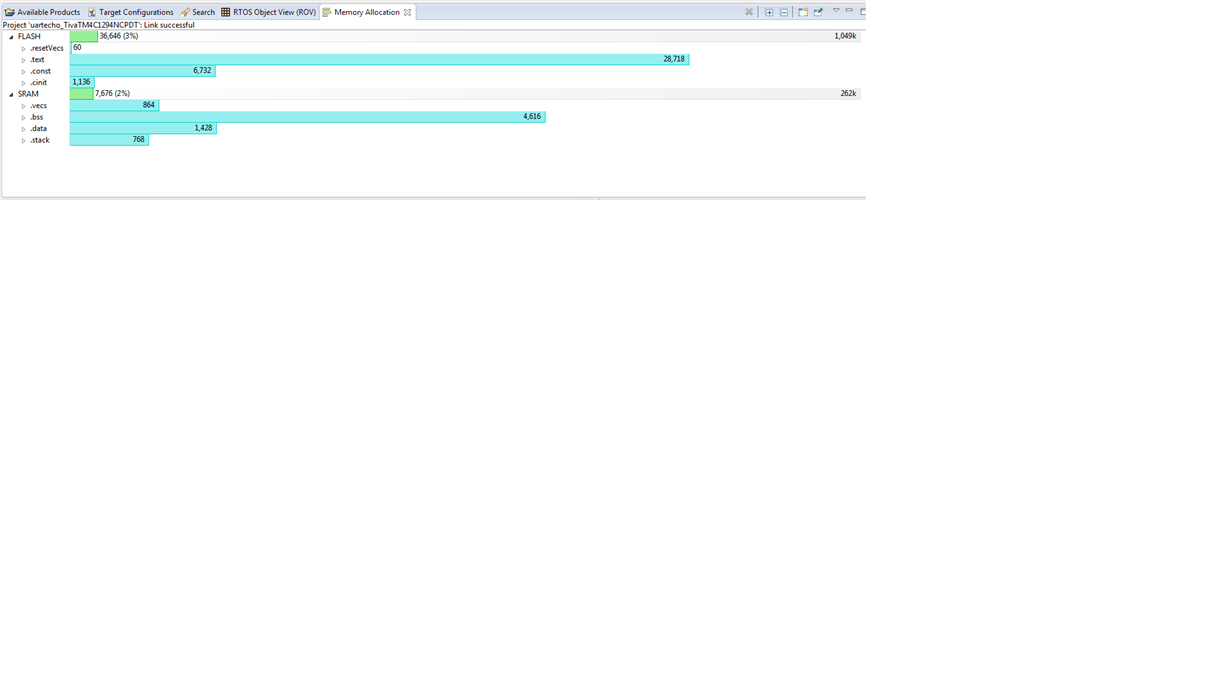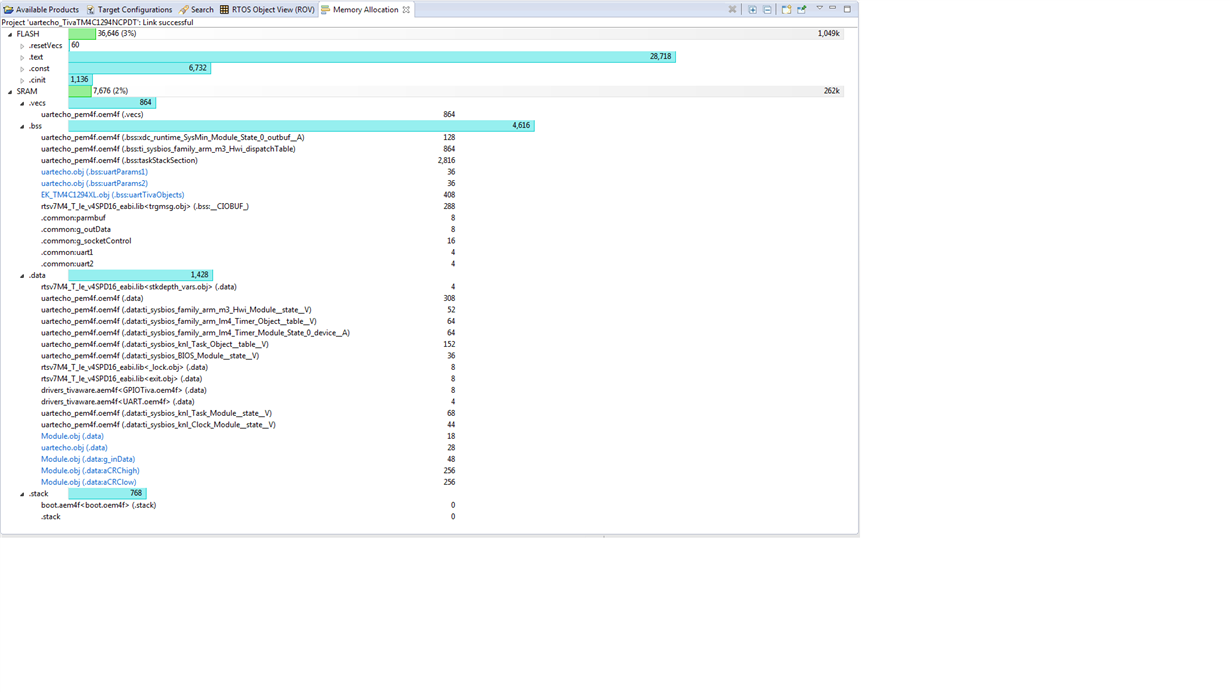I am using UART5 TM4C129XL board to read and write. I am using RTOS UART functions to do that. And it works fine until it jumps out after a few minutes.
This also happens when I write hard-coded data on UART, e.g. value 3.
This happens faster if I also System_printf the data that I send out.
Even though it's hard-coded data the jump-out happens after random amount of time, e.g., sometimes after 30 printouts and sometimes after 130 printouts.
The error however is always the same:
FSR = 0x0000
HFSR = 0x40000000
DFSR = 0x0000000b
Terminating program...
When I looked up "definitive guide to arm cortex m3 and cortex m4 processors" I found this:
HFSR = 0x40000000 means "Indicates hard fault is taken because of bus fault, memory management fault, or usage fault."
DFSR = 0x0000000b means
- "Indicates the debug event is caused by a vector catch, a programmable featurethat allows the processor to halt automatically when entering certain type of system exception including reset"
- "Indicates the debug event is caused by a breakpoint"
- "Indicates the processor is halted is by debugger request (including single step)."
Please feel free to share any thoughts that you may have to resolve this.
Thanks
Kaveh




